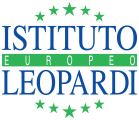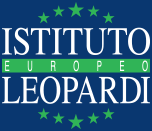–PRIMARY SCHOOL –
Bilingual Italian-English
SOLID FOUNDATION FOR FUTURE EDUCATION
Our Primary School proposes to guide the children through an educational programme, to attain an optimal basic knowledge as well as an excellent command of the English language.
Therefore, since 2013 we have reinforced the learning of English with the Strengthening of learning English project which has involved an increase in the hours of lessons in English, a greater presence of mother tongue staff and the teaching of subjects in English. From 2018 there has been a further improvement thanks to the accreditation received from the Cambridge International School in accordance with the IGCSE programmes.
The educational approach entails a careful and attentive process to ensure a complete cultural preparation that is more than adequate to face middle school without any difficulties.
OBJECTIVES
- Promote the creativity of the child, his interests and skills;
- Acquire command of the English language with a method aimed at “using the language to learn”;
- Consolidate an excellent basic knowledge, in accordance with the programmes of the Italian school, to handle the move to middle school with confidence;
- Safeguard the relationship school time and family time so that the student, having optimised the study method and the performance of tasks at school, can spend free time with the family;
- Reinforce the excellent results of the INVALSI tests, that are above the national and regional average for all tests;
- Establish the study method starting from grade three;
- Stimulate the potentialities and aptitudes of every student;
- Acquisition of control in cooperative learning;
- Promote the personal growth of each student, in close cooperation with the family: independence, awareness of one’s abilities, self-evaluation, confidence, sociality and solidarity.
EDUCATIONAL TOOLS
- Classrooms set up as laboratories, with interactive whiteboard (IWB), cabling and Wi-Fi coverage;
- Computer lab with 12 PC;
- Internal gym with stage;
- Internal kitchen;
- Football / basketball fields;
- Large courtyard for games divided in several areas;
- Multimedia room for meetings, conferences and lessons;
- Recreation room.
METHOD
- Educate through “having experiences” together to see, in a positive way, the diversity of every student and the importance of the group;
- Create a serene learning environment that transmits trust and enthusiasm, based on a positive student-teacher personal relationship;
- Use “Problem Solving” and “Brainstorming” methods to train the students to use logic;
- Introduction to CODING;
- Reinforce the learning of English through teaching with the international method which focusses on comprehension and communication and by starting the study of subjects in English;
- Make use of visits and trips taking advantage of the resources in the area and their discovery;
- Support the motivation that encourages the student to learn;
- Encourage cooperation and team work through “cooperative learning”;
- Make use of educational labs for all the subjects;
- Ensure a constant research and application of educational innovation, not just by digital means;
- Follow a harmonious psychological-physical, social-emotional and intellectual-ethical development, through activities intended as means of education;
- Teach attention to communication and interpersonal relationships;
- Use choral singing and drama as a useful instrument for personal development;
- Make use of formative assessment of the education.
SCHOOL HOURS
| Grade one | |
|---|---|
| MAIN TEACHERS | 19 hrs. (language arts, social studies, mathematics-science and computer lab) |
| ENGLISH | 3 hrs. (mother tongue: activity performed on two levels) |
| VISUAL ARTS | 2 hrs. |
| MUSIC | 2 hrs. |
| RELIGION | 2 hrs. |
| PHYSICAL EDUCATION | 2 hrs. (CLIL) |
| Grade two | |
|---|---|
| MAIN TEACHERS | 18 hrs. (language arts, social studies, mathematics-science and computer lab) |
| ENGLISH | 4 hrs. (mother tongue) |
| VISUAL ARTS | 2 hrs. |
| MUSIC | 2 hrs. |
| RELIGION | 2 hrs. |
| PHYSICAL EDUCATION | 2 hrs. (CLIL) |
| Grade three | |
|---|---|
| MAIN TEACHERS | 15 hrs. (language arts, social studies, mathematics and computer lab) |
| SCIENCES | 2 hrs. (CLIL) |
| ENGLISH | 5 hrs. |
| VISUAL ARTS | 2 hrs. |
| MUSIC | 2 hrs. |
| RELIGION | 2 hrs. |
| PHYSICAL EDUCATION | 2 hrs. (CLIL) |
| Grade four | |
|---|---|
| MAIN TEACHERS | 15 hrs. (language arts, social studies, mathematics and computer lab) |
| SCIENCES | 2 hrs. (CLIL) |
| ENGLISH | 5 hrs. |
| VISUAL ARTS | 2 hrs. |
| MUSIC | 2 hrs. |
| RELIGION | 2 hrs. |
| PHYSICAL EDUCATION | 2 hrs. (CLIL) |
| Grade five | |
|---|---|
| MAIN TEACHERS | 15 hrs. (language arts, social studies, mathematics and computer lab) |
| SCIENCES | 2 hrs. (CLIL) |
| ENGLISH | 5 hrs. |
| VISUAL ARTS | 2 hrs. |
| MUSIC | 2 hrs. |
| RELIGION | 2 hrs. |
| PHYSICAL EDUCATION | 2 hrs. (CLIL) |
SCHOOL TIMETABLE
Possibility of pre-lesson entrance from 8.00. The morning schedule starts at 8.25 and lessons are from 8.35 to 12.30 with a break of 15 minutes between the 2nd and 3rd hour.
The afternoon lessons are from 14.15 to 16.15 with possibility of after school until 18.15 for whoever should request it or in the event of occasional delay of the parent, or whoever is acting on their behalf.
See the spring menu
See the summer menu
See the automn menu (starting 11th October)
CERTIFICATES

Certification by the University of Cambridge for the attainment of the following certificates:
- Starters – First Level for grade 3
- Flyers o Key for School – A2 level for grade 5
EXTRACURRICULAR ACTIVITIES
- Afternoon sports courses (five-a-side football, mini-basket, taekwondo, gymnastics, swimming pool);
- Ski week during the Carnival;
- “Full Immersion” week at an English College to improve knowledge of the English language and culture;
- Theatre workshop in English;
- Summer school.
COMPLEMENTARY TEACHING ACTIVITIES
- All-day excursions and trips;
- Participation in sports events and competitions organised by the Italian Association A.I.C.S. that take place outside and in which parents are also involved;
- Participation in projects and competitions proposed by various entities and institutions;
- Course for the “game of chess”;
- Educational trips over several days with teaching programmes to gain knowledge about the local area;
- Solidarity initiatives.

